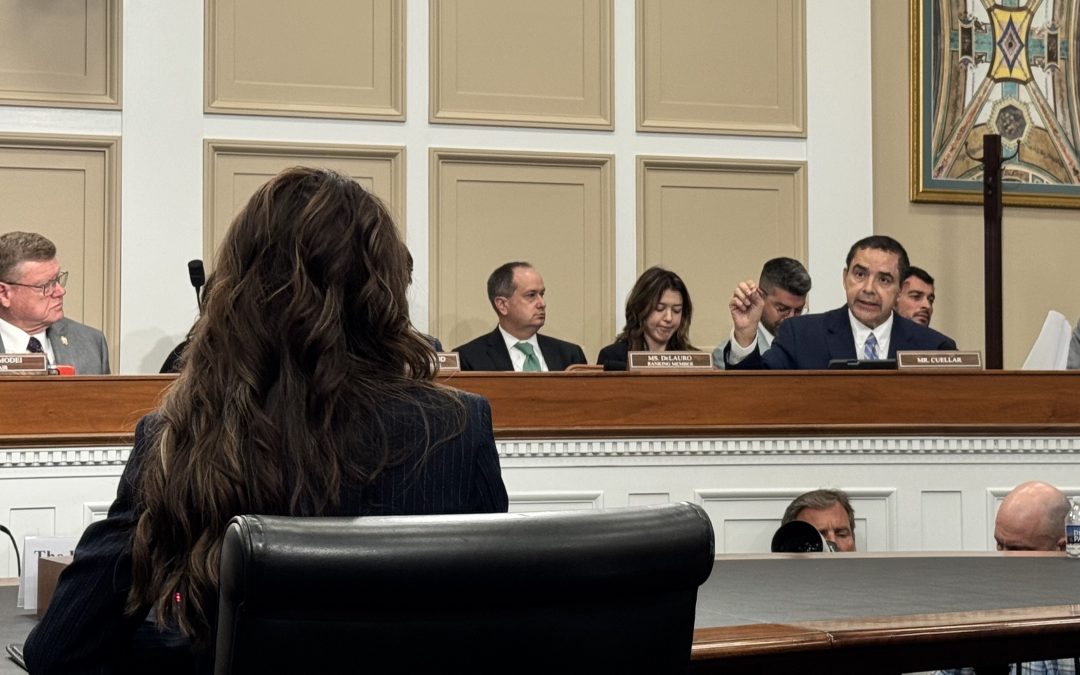WASHINGTON — Homeland Security Secretary Kristi Noem testified before Congress to defend the Trump administration’s $175 billion budget request for the Department of Homeland Security, facing bipartisan criticism over proposed cuts to disaster aid and steep increases in border enforcement spending.
The administration is seeking a 65 percent boost in funding for Customs and Border Protection and Immigration and Customs Enforcement in the upcoming fiscal year. The additional funding would cover costs for border infrastructure, new surveillance technology, and increased detention capacity. The proposal also includes billions for public communications efforts and for partnerships with local law enforcement.
She boasted about the steep decline in people illegally trying to cross the border each day.
“At the Southern Border, we have obtained near total control of daily encounters, now down over 93% since President Trump took office,” Noem told the House Appropriations subcommittee on Homeland Security.
But lawmakers questioned the logic of increasing border funding so significantly, particularly as Noem pointed to sharp declines in illegal crossings and drug trafficking.
“If you are obtaining such success at the border without all this extra money, do we need to cut other programs at the expense of that?” said Rep. Ed Case, D-Hawaii.
Much of the scrutiny focused on the administration’s plan to cut $646 million from the Federal Emergency Management Agency and reduce its long-term disaster recovery programs. Noem defended the move as part of an effort to return responsibility to states and streamline response efforts.
“It is a broken system that when fixed will return power to state emergency management directors and make America safe again,” she said.
But critics on the panel warned the cuts would weaken disaster readiness and shift an unsustainable burden to local governments. Rep. Tom Cole, R-Okla., said FEMA’s mission was not partisan, especially as communities across the country face more frequent and intense natural disasters.
“When state and local resources are exhausted, we do rely on FEMA to bring additional capabilities to save residents,” he said, referencing recent tornadoes that struck Oklahoma.
Noem maintained that resources were being directed where they were most needed and said the Department of Homeland Security remains committed to removing individuals with final deportation orders and combating transnational crime. She cited a 54 percent drop in fentanyl trafficking compared to earlier data and the designation of six Mexican cartels as foreign terrorist organizations.
Lawmakers from border states pressed for improvements in infrastructure and staffing. Rep. Henry Cuellar, D-Texas, warned of persistent equipment failures and communication blackouts among border patrol agents that result in so-called silent zones where agents cannot communicate even via walkie-talkie.
“There are areas where agents can’t even talk to each other,” he said.
The hearing concluded without consensus on the budget proposal, which is expected to face revisions in committee. Lawmakers signaled they would seek clearer justification for major funding shifts, particularly those affecting FEMA.
“It has strayed far from its core mission and evolved into an overextended federal bureaucracy attempting to manage every type of emergency – no matter how minor,” said Cam Hamilton, acting administrator of FEMA, in a statement. “Instead of being a last resort, FEMA is now frequently used by states as a first responder and a financial backstop for routine issues that should be handled locally,” he said.
Hamilton was fired the day after his testimony to the relevant FEMA subcommittee during a follow-up hearing.

